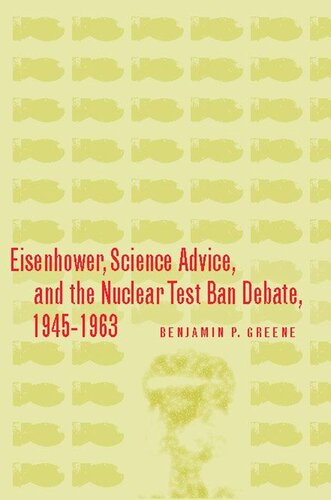

Most ebook files are in PDF format, so you can easily read them using various software such as Foxit Reader or directly on the Google Chrome browser.
Some ebook files are released by publishers in other formats such as .awz, .mobi, .epub, .fb2, etc. You may need to install specific software to read these formats on mobile/PC, such as Calibre.
Please read the tutorial at this link: https://ebookbell.com/faq
We offer FREE conversion to the popular formats you request; however, this may take some time. Therefore, right after payment, please email us, and we will try to provide the service as quickly as possible.
For some exceptional file formats or broken links (if any), please refrain from opening any disputes. Instead, email us first, and we will try to assist within a maximum of 6 hours.
EbookBell Team

4.4
102 reviewsBased on extensive research in government archives and private papers, this book analyzes the secret debate within the Eisenhower administration over the pursuit of a nuclear test-ban agreement. In contrast to much recent scholarship, this study concludes that Eisenhower strongly desired to reach an accord with the Soviet Union and the United Kingdom to cease nuclear weapons testing. For Eisenhower, a test ban would ease Cold War tensions, slow the nuclear arms race, and build confidence toward disarmament; however, he faced continual resistance from his early scientific advisers, most notably Lewis L. Strauss and Edward Teller. Extensive research into previously unavailable government archival sources and collections of private manuscripts reveals the manipulative acts of test-ban opponents and other factors that inhibited Eisenhower's actions throughout his presidency. Meticulously analyzed, these sources underscore Eisenhower's dependence on the counsel of his science advisors, such as Strauss, James R. Killian, and George B. Kistiakowsky, to determine the course he pursued in regard to several components of his national security strategy. In addition to its comprehensive analysis of the test-ban debate, this book makes important contributions to the scholarly literature assessing Eisenhower's leadership and his approach to arms control.